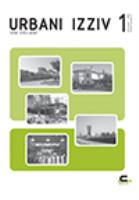Migrants and the transformation of local neighbourhoods: A study of the socioeconomic transformation of Lidcombe, Australia
Migrants and the transformation of local neighbourhoods: A study of the socioeconomic transformation of Lidcombe, Australia
Author(s): Franklin Obeng-Odoom, Hae Seong JangSubject(s): Rural and urban sociology, Migration Studies, Socio-Economic Research
Published by: Urbanistični inštitut Republike Slovenije
Keywords: urban necropolis; migration; migrants; local economic development
Summary/Abstract: A major contributor to negative attitudes towards migrants is that they exert pressure on the facilities of the host communities without making any (substantial) contribution to the host economy and society. This negative sentiment is particularly acute in cities, where pressure on amenities is concentrated and more visible. In turn, migrant neighbourhoods are particularly despised. Migration experiences in the Rookwood Cemetery area of Sydney, Australia, widely regarded as the “largest necropolis in the southern hemisphere”, however, challenge this stereotypical view. This migrant neighbourhood is the site of vibrant and diverse migration and migrant (especially Korean) activities never before seen in the history of the area, which is now called Lidcombe. Drawing on multiple sources of evidence, including archival research at local libraries, discussion with long-time residents of the neighbourhood and visual ethnography (analysed from the historical-structural perspective in migration studies), this study offers a history of Lidcombe and appraises its twenty-first-century migration experiences. By doing so, it highlights the demographic, social and economic changes to emphasise the contribution of migrants to the regeneration of a “dead city” and also to contest inherited stereotypes of migrants that often lead to racial scapegoating and misrepresentation as “parasites”, “criminals” and a “drain” on the host economy. Overall, this case study suggests that migrants can and often do transform the spaces they occupy in ways that make a positive and lasting contribution to the host economy and society more generally. This is an important lesson for European countries facing the “migrant crisis” to consider, as it also is for politicians around the world seeking to wall out migrants to protect host economies and societies.
Journal: Urbani izziv
- Issue Year: 27/2016
- Issue No: 1
- Page Range: 132-148
- Page Count: 17
- Language: English

